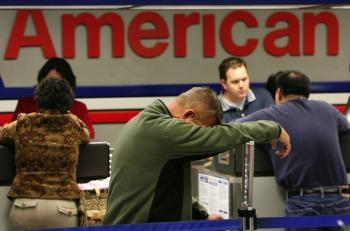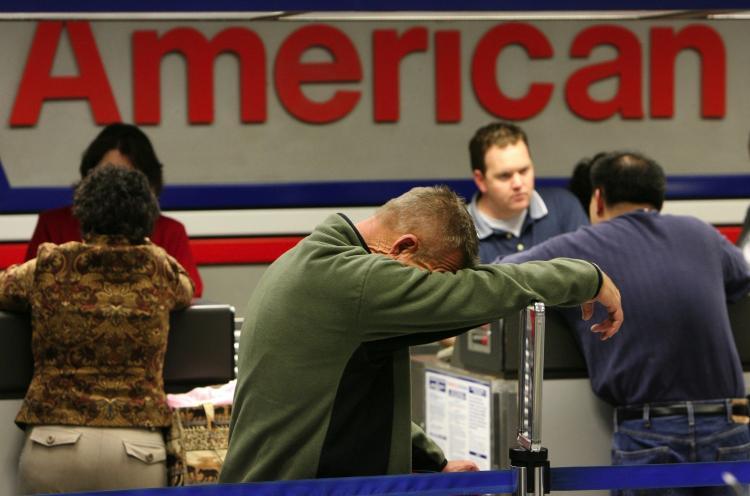The Air Transport Association (ATA) forecasted that around 16 million passengers will travel this year on Labor Day weekend, from Aug. 27 to Sept. 3, a 5.7 percent decline from 2007. ATA is the trade organization representing major U.S. airlines.
The main culprit for the projected decline is the reduced number of flights available on all major airlines, due to exorbitant oil prices and deteriorating financial conditions at airlines. Triple-digit crude oil prices have forced airlines to increase airfare, and cut service and frills. The same economic environment is also forcing consumers to cut back on discretionary spending such as vacationing and traveling.
“We expect airplanes to be less full and skies to be less crowded this Labor Day holiday,” said ATA President James C. May. “Economic uncertainty and the heavy hit from sky-high energy prices mean that many vacation and business travelers are choosing to stay closer to home—if they go at all.”
According to ATA, jet fuel has averaged $160.47 per barrel, a 79 percent increase from the $89.82 price last year around this time.
The reduced traffic—with the Holiday travel season approaching—may cut further into the profitability of airlines aggressively seeking to cut costs.
More Fees, Fewer Freebies
Facing high oil prices, airlines have cut back on services and increased certain fees over the recent months. Consumer advocates predict that more cuts are on the way.
Two weeks ago, Delta Air Lines and U.S. Airways implemented service charges for booking frequent flier mile reward trips—$25 for domestic flights and $50 for international destinations. The number of miles required to book complimentary tickets is also projected to climb for most airlines.
The days of checking in two pieces of luggage for free are over. Airlines now regularly charge up to $25 to check in one bag, and up to $50 for a second piece of luggage. Forcing travelers to pack lighter is one strategy airlines utilize to save weight and save on jet fuel.
JetBlue Airways recently announced that it will charge $7 for pillows and blankets. Other formerly free perks, such as snacks and non-alcoholic beverages, are increasingly being peddled for a price. Currently, the only domestic airline to offer complimentary meals is Houston-based Continental Airlines.
Summer airfares are up 13 percent over 2007 with the average domestic flight at $366 compared to $317 in 2007, according to data from Travelocity.com, a major web-based travel agency. The prices are expected to climb further during the winter traveling season.
In addition to increased fares, travelers should also brace for fewer flight options as airlines cut back on service and use smaller planes to save on gas, analysts predict.
“What vacationers will have to do is really plan in advance,” Says Amy Ziff, Travelocity.com Editor-At-Large, in her blog. “There are going to be fewer seats than ever this fall and winter and already I’m seeing large volumes of tickets being bought early by people who are paying attention to what’s going on in the industry.”






